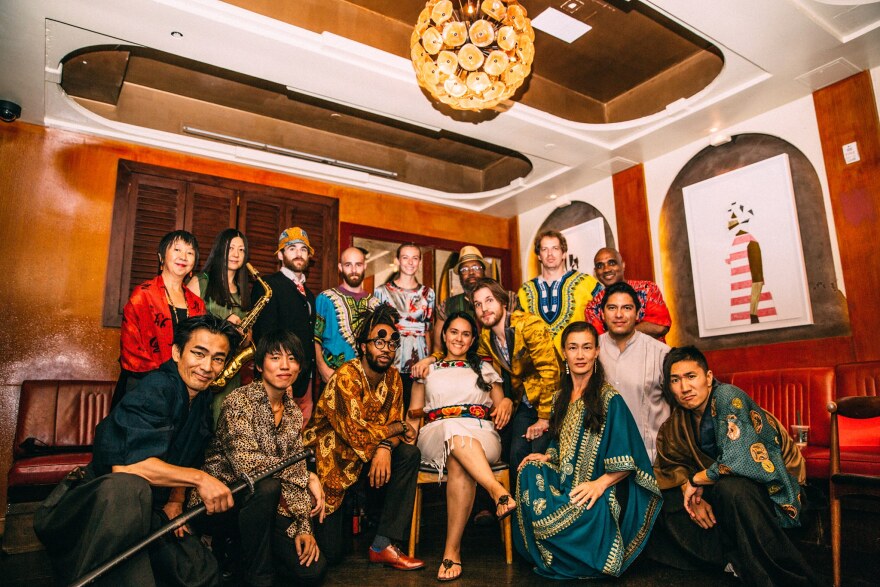The historic communities of escaped slaves and indigenous people known in the Americas as “maroons” are not exactly obscure. Maroon settlements flourished from Virginia south to Brazil, and in Jamaica, one celebrated surviving community now draws tourists.
However, the ideals of freedom, egalitarianism and ecological stewardship that informed maroon life have perhaps not spread so readily into the modern world. That’s where Pittsburgh’s Afro Yaqui Music Collective comes in. The new album by this self-described “post-colonial big band” is titled “Maroon Futures,” and it offers the legacy of freedom-seekers who created a better way of life as a model for contemporary people to emulate.
“We feel like we can really create a musical space that fights and provides an alternative to all the forces of racism and social exclusion that unfortunately have become more prevalent in the past four to six years,” said co-founder Ben Barson. Much like the original maroons, “We’re basically trying to create this radically inclusive space.”
Afro Yaqui, formed in 2016, fuses jazz, funk and hip hop with indigenous instrumentation and languages. It’s led by Barson, a composer, arranger and saxophonist, and his wife, vocalist Gizelxanath Rodriguez. The group’s earlier albums included 2019’s “Mirror Butterfly: The Migrant Movement Liberation Suite.”
While the band’s lineup has fluctuated through the years, the 14 musicians contributing to “Maroon Futures” also include emcee Nejma Nefertiti, Mimi Jong on erhu, and Yang Jin on pipa and zheng. Spoken-word tracks are contributed by Charlotte Hill O’Neal, a former Black Panther now based in Tanzania who performs under the name Mama C.
O’Neal’s contributions are highlighted on the track “Sister Soul,” in which she declaims the virtues of matriarchs and matriarchal societies. The song “is kind of connecting the destruction of nature and the planet to the oppression of women through patriarchy. And so it’s calling for a kind of ecological matriarchy,” says Barson.
“La Cigarra” is a song, sung in Spanish, about 17-year cicadas that doubles as a metaphor. “It also reminds us of political prisoners that are in the dark” like cicadas buried underground, said Rodriguez. “They are buried in their cells, and we hope that one day they’re gonna come out and be free again, and come out and see the light, to breathe some fresh air.”
The album is dedicated to prison inmate Russell “Maroon” Shoatz. He has spent a half-century in prison, serving several life sentences for the murder of a Philadelphia police officer; his supporters regard him as a political prisoner because of his outspoken advocacy for Black liberation and other causes, and because he spent more than two decades in solitary confinement. Shoatz, 77, has stage 4 cancer, and supporters want Gov. Tom Wolf to grant him compassionate release.
In addition, proceeds from “Maroon Futures” will benefit two projects in the maroon spirit: the North Philadelphia Peace Park, an urban farm, and school and radio projects of the Yaqui people, in Mexico, a marginalized indigenous community of which Rodriguez claims ancestry.
Because of the ongoing pandemic, Afro Yaqui is limiting its shows to outdoor venues. The next is set for Aug. 29, at City of Asylum’s tent on Sampsonia Way on the North Side. The other is at Pittonkatonk, the festival of brass band music, Sept. 3, at Veterans Pavilion in Schenley Park.





